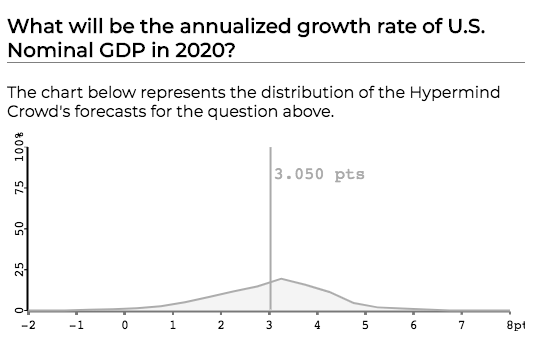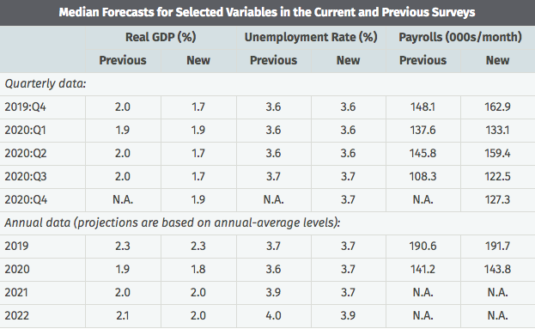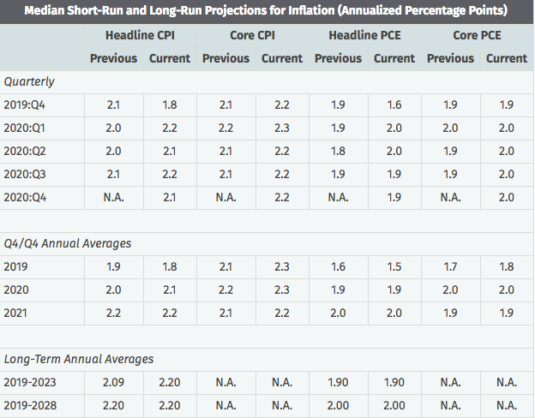Nafta 2.0: What’s the point?
There seems to be a tentative Nafta agreement between Trump and the House Democrats. The fact that Trump and the “progressive” Dems agree on the trade deal while the congressional GOP is skeptical is itself a pretty good indicator of what’s in the package.
The former ambassador to Canada is a big fan of the deal:
Bruce Heyman, the former U.S. ambassador to Canada from 2014 to 2017, went even further.
“It’s one of those rare circumstances we’ve seen now for the last few years, where you have a win-win-win,” Heyman said on Yahoo Finance’s On the Move. “You have a win for not only the administration, but also Congress. You have a win for American workers, farmers, and the environment. You have a win for Canada and Mexico. And so altogether, I think that this should be a day to celebrate our trading relationship.”
He added that while his preference was that the aborted Trans-Pacific Partnership (TPP) would have served as the replacement to NAFTA, the new deal will have a similar effect.
“Lo and behold, the president said the TPP was bad and NAFTA was bad,” Heyman said. “But what did we get? 65% to 70% of the exact language in this new USMCA is TPP. They lifted it right out of TPP. The rest is pretty much the structure of NAFTA with the exception of these auto provisions that were put in.”
I’m not going to dispute the facts here, but I have a very different interpretation of the deal.
Unfortunately, much of the media doesn’t understand international economics, and hence has no framework for analyzing this sort of agreement. I’ll start by trying to provide a framework.
There are basically two types of “trade policies”. One set of policies influences the overall current account balance. Those are macro policies affecting saving and investment. Another set of policies impact the composition of trade, favoring one industry over another, without having any impact on the overall trade balance. That’s clearly what we have with the new Nafta agreement.
The current account balance (by definition) is domestic saving minus domestic investment. Trump’s macro trade policies are likely to boost the deficit, as they discourage domestic saving and encourage domestic investment. Thus Trump’s huge fiscal deficits would be expected to result in a larger current account deficit, which is what has occurred. Indeed it might be even “worse” than the official figures show, as the new tax bill could lead to accounting changes that disguise the increase in the trade deficit. (I use scare quotes for “worse”, as trade deficits aren’t actually bad, although the fiscal stimulus that is boosting the trade deficit is bad for other reasons.)
The new Nafta agreement has some bizarre provisions, such as the US telling Mexico how to run its labor unions, which are stupid but relatively meaningless. More importantly, there a few provisions that favor specific US industries, such as auto parts and steel. The effect on auto manufacturing is ambiguous, as the higher cost of auto parts and steel will make US cars less competitive against German, Japanese and Korean imports.
Most importantly, this is a zero sum game for the trade balance. Because the new Nafta won’t impact the overall trade balance, it will hurt those sectors of manufacturing not explicitly aided by the agreement. This is the “general equilibrium” perspective that non-economists often miss. Thus areas of manufacturing outside steel and auto parts will suffer a loss of sales and employment.
The simple way to evaluate political actions is to look at what the policymakers claim they are trying to do. The supposedly more sophisticated method is to look at who gains and loses, and then assume that the policymakers are motivated by special interest politics. In this case, I don’t believe that either approach works.
I don’t see a shred of evidence that either Trump or the congressional Dems have any idea as to what they are doing here. The new Nafta is similar to the old Nafta, with slightly less free trade. But what’s the motivation for that? If you think free trade is good, then why revise the original agreement? If you think free trade is bad, then why not just let Nafta expire? Treat Mexico and Canada like any other trading partner. What’s the motivation for a new Nafta that’s slightly more protectionist than the old Nafta?
There is a lot of evidence that politicians have no understanding of basic trade theory. Trump is known to be a fan of the views of Peter Navarro, who is one of his key advisors on trade issues. But Navarro is unaware of even the most basic concepts in trade theory. He believes that the famous expenditure identity (GDP = C + I + G + (X-M)) somehow shows that trade deficits reduce GDP. It is possible that trade deficits reduce GDP (I doubt it), but that equation certainly doesn’t show that.
Instead of looking at who gains and who loses, I would focus on the mistaken views of Trump and congressional Democrats. I doubt that either group set out to punish manufacturing firms that do not produce auto parts and steel, but that’s the effect of their actions.
While this is a bad agreement, it’s also not very important. Indeed in some respects it’s very good news. Trump’s ignorance of trade theory makes it more likely that he’ll settle for a similarly meaningless deal with China, one that doesn’t accomplish what he seems to want to accomplish.
Some commenters suggest that I don’t care about how our trade deficit hurts blue collar workers in America. It’s true that I don’t care about our trade deficit, but I do favor policies that would reduce our trade deficit (albeit not because they would reduce our trade deficit.) Most notably, I favor policies that would dramatically boost domestic saving, making us more like Germany and Japan. I’m an outlier here, most economists and pundits favor going in the opposite direction.
So if you were to line up all economists, financial reporters, politicians, and other pundits, my policy views are clearly at the extreme “pro-saving” end of the spectrum, and hence most conducive to a smaller trade deficit. Trump’s views are at the opposite extreme. My policy views are effectively “pro-American manufacturing”.
Motivations are one thing, but in the end it’s results that matter.
PS. It’s funny that the language for the new deal was lifted right out of the supposedly awful TPP agreement.
PPS. My claim that fiscal deficits increase current account deficits does not mean that other factors are not important. It’s a “ceteris paribus” claim. I realize that the two variables are only very loosely correlated over time. Thus the current account deficit fell even as the budget deficit rose during the Great Recession. The recent increase in the budget deficit is more unusual, occurring during a period of economic boom. I suspect this has had a causal impact on the current account.






